How to handle pre-game pressure?
Being in the right frame of mind is as important as training right ahead of a game. So, how do you conquer those pregame nerves? In our recent webinar with Maithili Bhuptani, Sport & Exercise Psychologist at Reliance Foundation Hospital, we discussed the importance of handling pressure for athletes.
Being in the right frame of mind is as important as training right ahead of a game. So, how do you conquer those pregame nerves? In our recent webinar with Maithili Bhuptani, Sport & Exercise Psychologist at Reliance Foundation Hospital, we discussed the importance of handling pressure for athletes.
Maithili started the session, by discussing, what exactly is pressure? Pressure is usually an induced anxiety before the game which hinders the concentration from the game. The responses to such a feeling can be divided into three categories; cognitive, behavioral and affect.
She then elaborated on each of these responses to pressure and each can be identified by their symptoms.
Cognitive Responses:
- Positive or negative thoughts about the event
- Thoughts about the outcome of the event
- Thoughts about the opponent
Symptoms
- inability to concentrate
- poor judgement
- focusing only on the negatives
- thoughts about losing the competition
- constant worrying
- anxious or racing thoughts
Behavioural Responses:
- Increased adrenaline
- Fluctuations in heart
- Changes in breathing patterns
Symptoms:
- eating more or less
- sleeping more or less
- nervous habits
- body aches and pains
- rapid heartbeats
- sweaty palms
Affect Responses:
- Excitement
- Negative feelings of fear and excitement
- Positive feelings of anticipation
Symptoms:
- moodiness
- irritability and anger
- agitation
- feeling overwhelmed
- inability to relax
Pressure can be rooted from different areas. Maithili discussed the following sources of pressure:
- Things you want
- Consequences
- Expectations
- Fear and doubt
The sources of pressure can vary but it all stems from oneself. Maithili emphasised that pressure is self-created. It in itself may or may not be good. The way one perceives pressure will imply the outcome. It can be perceived as a threat or challenge, this determines whether pressure is good or bad oneself.
Once you identify your source of pressure and how you perceive it, it is important to handle it effectively. Maithili explained the right responses to handle pressure; using the 3R’s. What are the 3R’s? Recognize. Reflect. Rework.
She explained each of the R using an activity. She asked the audience to take one pressure situation they have experienced, this could be, the anxiousness or the fear of outcome of the game. With this she gave an in-depth explanation of the R’s:
- Recognize the responses:
- What do I feel or think about the responses?
- Do i experience any symptoms
- Are my symptoms a cognitive, behavioural or affect response?
- Reflect on the situation:
- Why am I feeling or experiencing this?
- What are the trigger points that made me feel this way?
- Is my thought or belief rational?
- Rework on the responses:
- What can I do to eliminate my responses?
- What can I do to cope better with the situation?
- How can I change my irrational beliefs to rational?
Once you identify responses, this can be used to overcome pressure. Maithili suggested a few tips to overcome pressure. They are as follows;
- Deep breathing techniques
- Confident body language
- Positive self-talk
- Challenge your irrational thoughts
- Understand that pressure is something you create for yourself, not the situation you are competing with
- Be specific and consider elements of effort and the process of performing an action
- Focus on what you can control for your role
- Stop and remind yourself to focus on your routine and what you can control
Using these methods, one can inch towards strengthening their mental state and tackling their stressors. This could help an athlete in handling pressure.
In case of queries or if you have any suggestions for webinar topics, please feel free to connect with us on Instagram/Facebook or email us at info@rfyouthsports.com

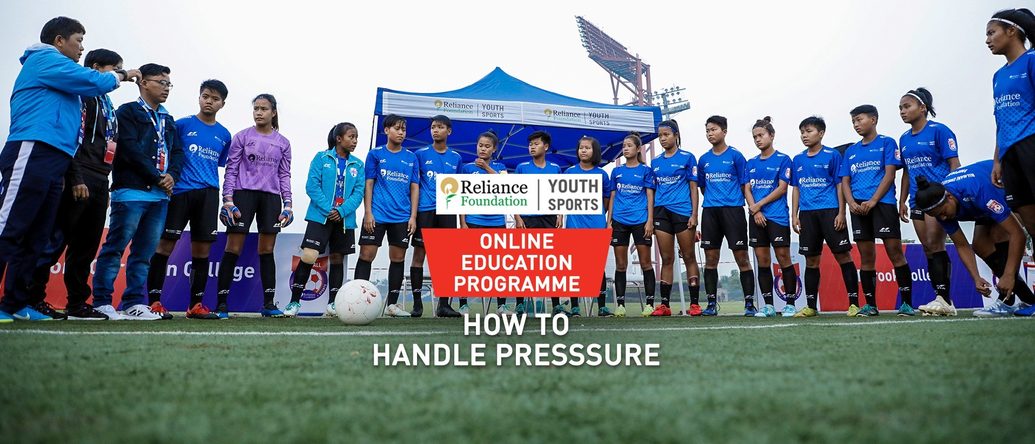
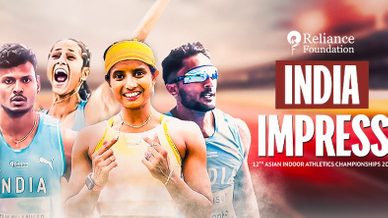
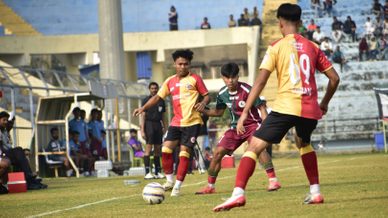


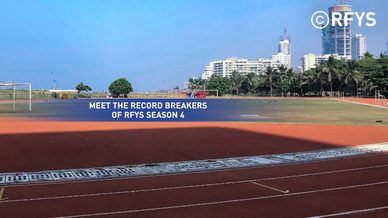

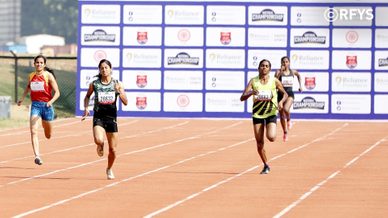



Your Comments